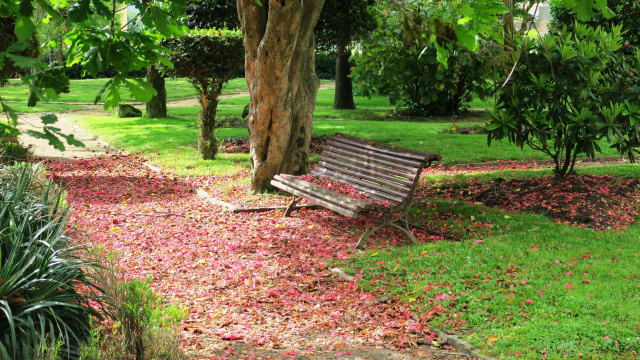Discover Padrón

Padrón Artistic Botanical Garden
The Padrón Artistic Botanical Garden belongs to the Spanish Assets of Cultural Value (1946) and is considered one of the leading botanical gardens in Galicia due to the meaningfulness of its garden elements. It has been an artistic heritage site for decades, and the theme of its design is closely related to the Roman Catholic tradition of Padrón as the “cradle of St. James,” given this name because popular tradition claims it to be the place of the disembarkation of the body of Saint James the Great.
Another universal cultural element latent in the garden is literature, transmitted through the presence of important writers such as poet Rosalía de Castro, Nobel Prize winner Camilo José Cela, Galician troubadour Macías “o Namorado” (“the Lover”), or the great Castelao – writers whose souls live on through the garden. Furthermore, the commemorative activity of this space is reflected in its monumental elements, including sculptures and meaningful species whose presence pays tribute to the region’s most recent history. The oldest known records of the Padrón Artistic Botanical Garden date back to the year 1869; hence, it is considered one of the first botanical gardens in Spain. The oldest section of the garden, with a conscientious French-style design, is home to a flower bed filled with imaginative geometric shapes, infused with symbolism in relation to the cultural elements that form its identity. The most recent section, with an English-style design and rows of majestic London planes, bears witness to the social splendour of Padrón of times past, when the chords of music resounded on the town’s most important occasions. It is also worth remarking the St. James-themed perimeter fence surrounding the garden, which contains iconic elements such as scallop shells and the Cross of St. James.
Spanning approximately 1 hectare, the garden is home to approximately 300 species, the most specific of which are categorized as veteran trees. This definition includes fascinating examples such as a Senegal date palm, two coastal redwoods, a Christ thorn, an English oak and a horse-chestnut.







































